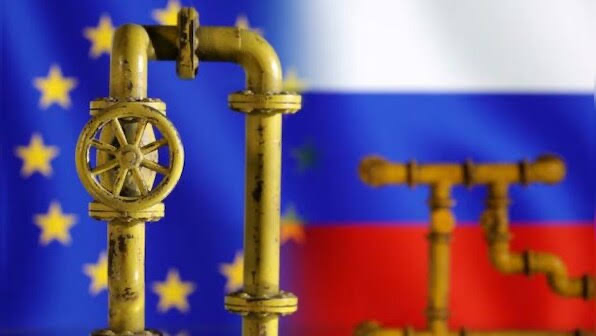European Union (EU) member states are in the midst of intense negotiations regarding a new wave of sanctions targeting Russia in response to its continuing war in Ukraine. There is broad support for the measures, which include the unprecedented restriction of Russian liquefied natural gas (LNG) exports. However, critical questions remain unanswered.
Concerns Over LNG Ban’s Impact
Several EU countries, including Belgium, France, and Germany, have petitioned the European Commission to conduct assessments to evaluate the potential consequences of a ban on LNG transshipments at European ports. The primary concern is determining whether such a measure would inflict greater damage on the Russian economy or on the EU itself.
These negotiations are expected to take weeks to finalize, with diplomats aiming to establish the 14th sanctions package before Hungary assumes the rotating presidency of the EU in July. Hungarian Prime Minister Viktor Orbán, known for his cordial relationship with Russian President Vladimir Putin, has previously obstructed both financial aid to Ukraine and restrictions on Moscow.
The EU’s ability to impose effective sanctions is demonstrably diminishing as the war extends. Previous measures have been thwarted by loopholes and workarounds. “We were genuinely surprised by the resilience of the Russian economy, but it has undeniably been hurt,” noted one diplomat. “Russia is essentially transforming into a war-based economy.”
The Kremlin has threatened to retaliate against any “illegal” sanctions the EU imposes on its LNG operations, warning of potential negative consequences for European industry.
EU Seeks to Tighten Enforcement
EU policymakers are engaged in a debate regarding whether to hold European companies accountable for the actions of their distributors in third countries. However, they are apprehensive that excessive bureaucratic hurdles could hinder businesses, particularly after prior sanctions mandated that contracts explicitly prohibit the re-export of goods to Russia.
A separate sanctions package is also under consideration. This package aims to synchronize pre-war sanctions imposed on Belarus with those subsequently levied against Russia. It also seeks to close a significant loophole that allowed numerous EU goods to reach Russia through Belarus.
A sticking point in these discussions is the “empty annex” provision, which would authorize the temporary export of Belarusian potash, a crucial fertilizer, via Europe in the event of a price spike similar to the one witnessed in 2022. This exemption has raised concerns about potential harm to third-party countries.
The EU is facing a time crunch to finalize the sanctions package before Hungary assumes the EU presidency. Orbán’s stance on the war in Ukraine and his relationship with Putin raise concerns about potential delays or obstructions. The efficacy of previous sanctions has already been hampered by loopholes, and the EU is seeking to tighten enforcement measures in this new package.
Energy Security Concerns
The potential restriction on Russian LNG exports has emerged as a contentious issue. While the EU aims to cripple the Russian economy, member states are also apprehensive about the potential impact on their own energy security. The assessments requested by several EU countries aim to address these concerns and determine whether alternative sources can sufficiently meet energy demands.
The war in Ukraine has had a significant impact on global energy markets. The potential restriction of Russian LNG exports could further disrupt these markets and lead to price hikes. The EU is not the only major importer of Russian LNG, and the ramifications of these sanctions would likely be felt worldwide.
The EU’s next sanctions package against Russia remains shrouded in uncertainty. While there is broad support for the measures, key questions regarding the LNG ban and its impact on the EU’s energy security persist. The bloc is racing against time to finalize the package before Hungary assumes the EU presidency, and Orbán’s stance on the war adds another layer of complexity to the negotiations. The coming weeks will be crucial in determining the shape and impact of the EU’s upcoming sanctions on Russia.
Source: Reuters



